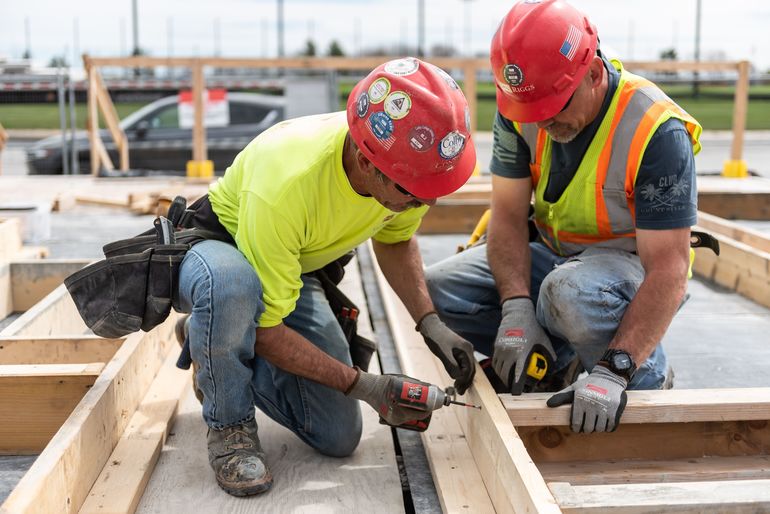Construction prices predicted to rise another 7% to 9% this year, report says
 Courtesy / Robert Umenhofer Photography, Consigli Construction Co. Inc.
Consigli Construction Co. Inc. expects higher prices and more difficulty getting supplies this year.
Courtesy / Robert Umenhofer Photography, Consigli Construction Co. Inc.
Consigli Construction Co. Inc. expects higher prices and more difficulty getting supplies this year.
The start of the year brought some hope for stability to the construction industry, but that quickly faded as world events added new supply challenges and cost increases, according to the latest market outlook from Consigli Construction Co. Inc.
The war in Ukraine has reduced the supply of raw materials, while port congestion from China to Los Angeles and COVID-19 variants have made securing necessary construction supplies more complicated and more costly.
As a result, Consigli, which is based in Milford, Mass., and has a Portland office, now expects overall project price increases of 7% to 9% this year, with more potential disruptions in the future adding possible further costs, delays and complications. Those projected increases are on top of a 12% increase in overall costs of projects last year, said Peter Capone, Consigli’s director of purchasing.
Some supplies may see even higher price increases. Roofing "membranes" and insulation are expected to see price jumps of 10% to 15%, while ductile iron pipes could see a rise of 15%. Everything from copper wiring and cabling to door hardware and structural steel and lumber are all expected to see some moderate price hikes, Consigli said.
Escalating fuel prices also are adding to cost increases along the entire supply chain, whether it’s the cost to manufacture the goods or shipping them, the firm said.
Another headache in planning large-scale construction projects has been securing the right materials when needed. Long delays have stretched out projects or caused contractors to juggle various parts of a project differently.
For example, some Maine jobs are being fabricated in sections in South Paris and assembled together at the end, said Matthew Tonello, project executive and director of Maine operations based in Consigli's Portland office.
Delays of a year
For large mechanical and electrical equipment, delays can be as long as 13 months. The wait for roofing insulation can be six to eight months, while supplies such as elevators can take six months and steel joists and appliances can take three- to -four months, the firm found.
“Supplies that would take six to eight weeks to order in the past are taking 12 to 13 months now,” said Capone.
“We’re having to pre-buy materials and store it,” Tonello said.
The firm bought warehouses in Portland, Brunswick and Fairfield to hold materials whenever they could acquire them instead of ordering them on an as-needed basis for jobs, Tonello said.
Issues that could create further hiccups going forward include the International Longshoreman Warehouse Union contract negotiations, which could disrupt U.S. freight markets. Contract negotiations are scheduled for July and will affect 22,000 longshoremen working at 79 ports.
Meanwhile, $1 billion in federal stimulus funding, which will award funds to invest in regions across the country, will place an additional burden on the labor workforce, which is already stretched thin.
“In Maine, you have the oldest population in the nation. There’s significant skill sets leaving the workforce and retiring that have 30 or 40 years of experience that’s hard to replace,” said Tonello.
Consigli also found that about half of its larger subcontractors have said that 85% of their backlog is booked for 2022 and quickly filling for 2023, making it difficult to arrange windows of available field labor for projects.
“All of this is requiring us to communicate and over-communicate with our suppliers and subcontractors everyday to make sure we don’t miss something. Customers still want their project done when they want it. But if you have a plan to avoid a problem and offer solutions, they can be pretty understanding. We try to avoid any issues,” Capone said.
Consigli has more than 1,600 employees, 10 regional offices from Portland to Washington, D.C., and about $2.3 billion in annual volume.










0 Comments